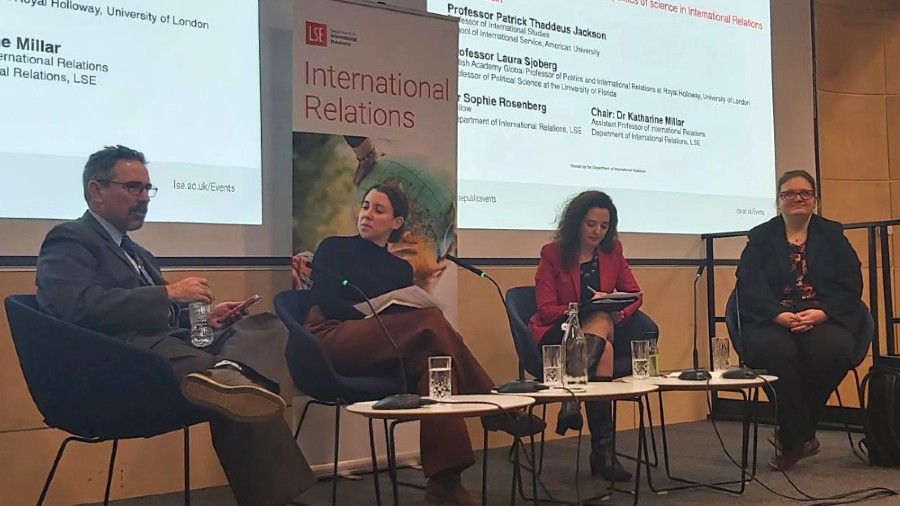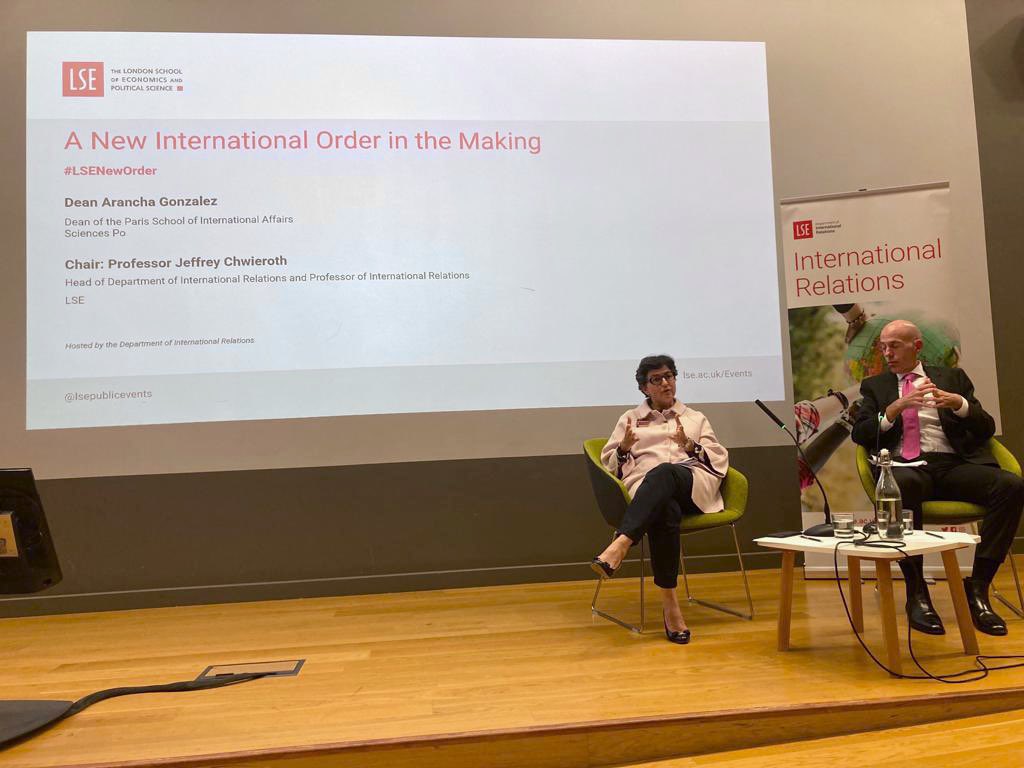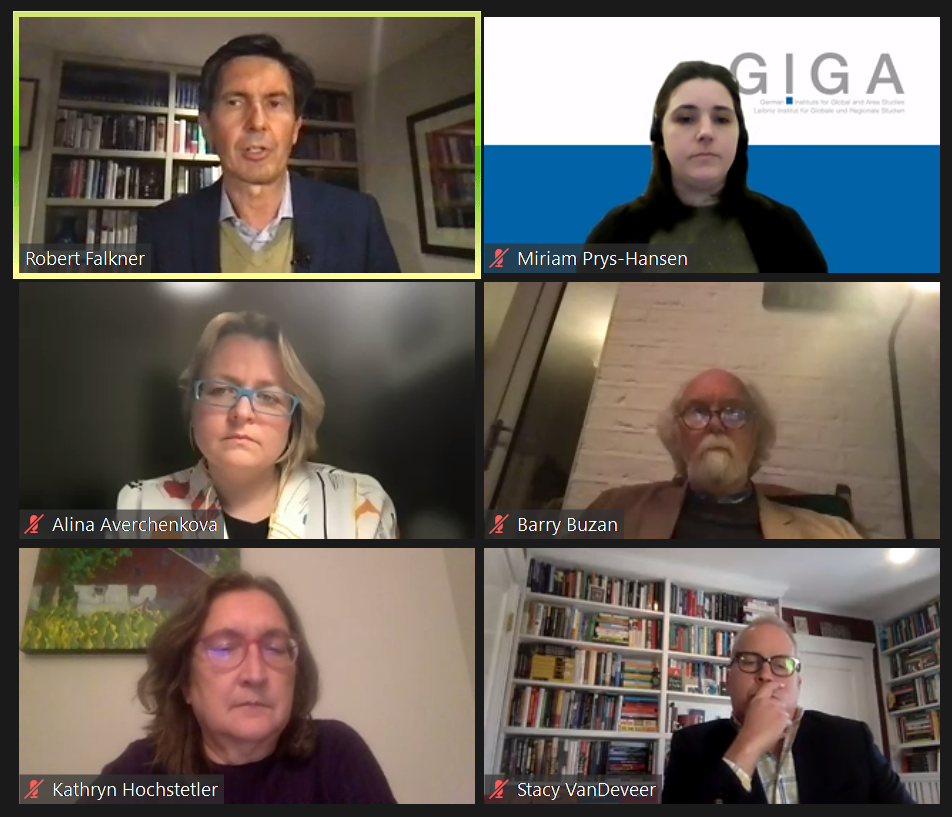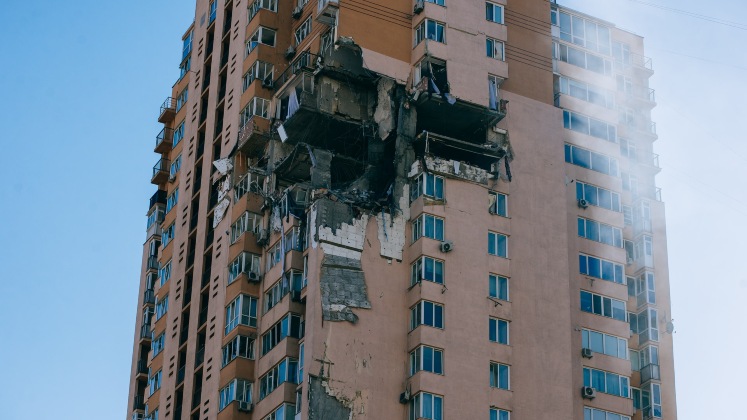On Thursday 1 December 2022, Professor Thierry Balzacq, Susan Strange Visiting Professor 2022/23 at LSE and Professor in the Center for International Studies at SciencesPo, gave the Susan Strange Lecture on the role of diplomatic rituals in world politics. He specifically looked at the nature of rituals as compared to other social actions and examined the differences they make to the character of international society.
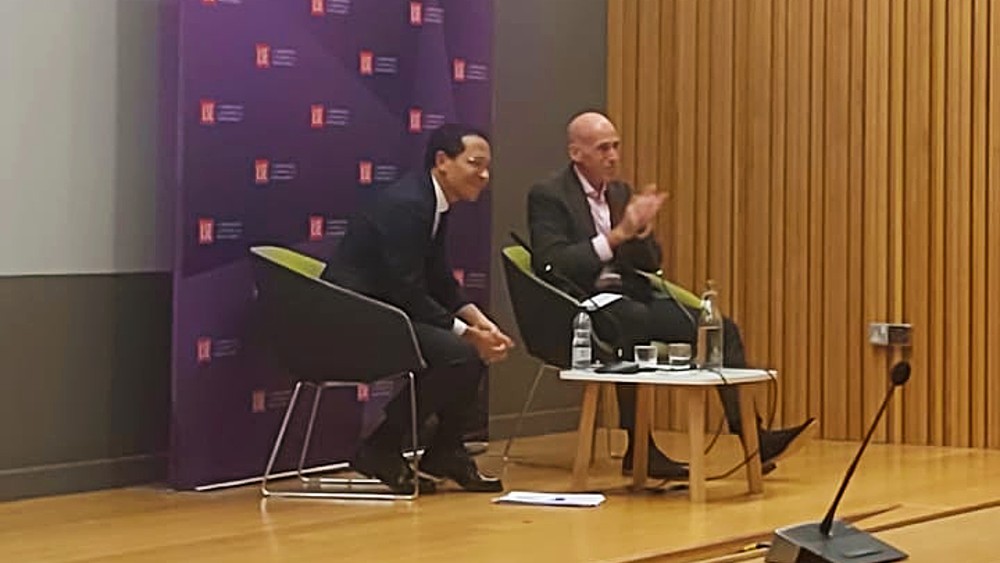
Professor Thierry Balzacq with Chair Professor Jeffrey Chwieroth
As a Fellow at several high-ranking universities and former Scientific Director of the French Ministry of Defense’s research centre, Thierry Balzacq is currently working on a book that promotes a systematic approach to rituals within the discipline of International Relations.
When we study the newspapers, there are certain images that stay in the mind: A friendly handshake between presidents, a gift to the visiting foreign minister or a military parade to demonstrate power. Professor Balzacq began his lecture by pointing out the omnipresence of rituals in diplomacy and by tracing the development of their study from a functional approach, centred on religious beliefs, to an ontological viewpoint, focusing on the ritualistic process itself more than on its purpose.
He went on to explain how rituals as bridges between differences affect the character of international society through the management of pluralism, the manifestation of authority and the mutual representation of the other. Through the establishment of a conventional understanding of how one should act, rituals must, according to our speaker, necessarily assume a dual function of integration and disintegration.
Through the establishment of a conventional understanding of how one should act, rituals must, according to our speaker, necessarily assume a dual function of integration and disintegration.
The second half of the event was dedicated to the many curious and challenging questions that faculty members and students alike had regarding our guest’s analysis of diplomatic rituals. Thierry Balzacq explained how rituals can be differentiated from similar notions such as tradition and protocol and stressed their inherently human nature and the role they play as a place where compromise is constructed. When the normative rules associated with rituals are violated, he emphasised, polarisation can be one of the consequences. But we should not forget that the very act of disruption can ironically also give surprising weight and legitimacy to the practice itself.
In reaction to a question on the possible reproduction of power dynamics through ritualistic behaviour, Professor Balzacq finally touched upon rituals’ tendency to generate hierarchies by creating a context in which some actors more than others are likely to feel at ease.
Rituals’ tendency to generate hierarchies by creating a context in which some actors more than others are likely to feel at ease.
From time to time, the voices dismissing the ritualistic behaviour of diplomatic actors as redundant artefacts of the past, get louder. But Thierry Balzacq demonstrates in an impressive way how a closer look at these performances substantially advances our understanding of the logics of diplomacy and of the general intimate connection between social actions and rituals in the discipline of IR. Their importance might at times only come to light in retrospect or when their continuity is broken. But fact is, diplomatic rituals matter. Maybe not always in this groundbreaking, astonishing way, but through continuous practice, in the daily making of world politics.
But fact is, diplomatic rituals matter. Maybe not always in this groundbreaking, astonishing way, but through continuous practice, in the daily making of world politics.
Event report by Marlene Willimek, Sciences Po-LSE MSc Double Degree in Affaires Internationales and IR



